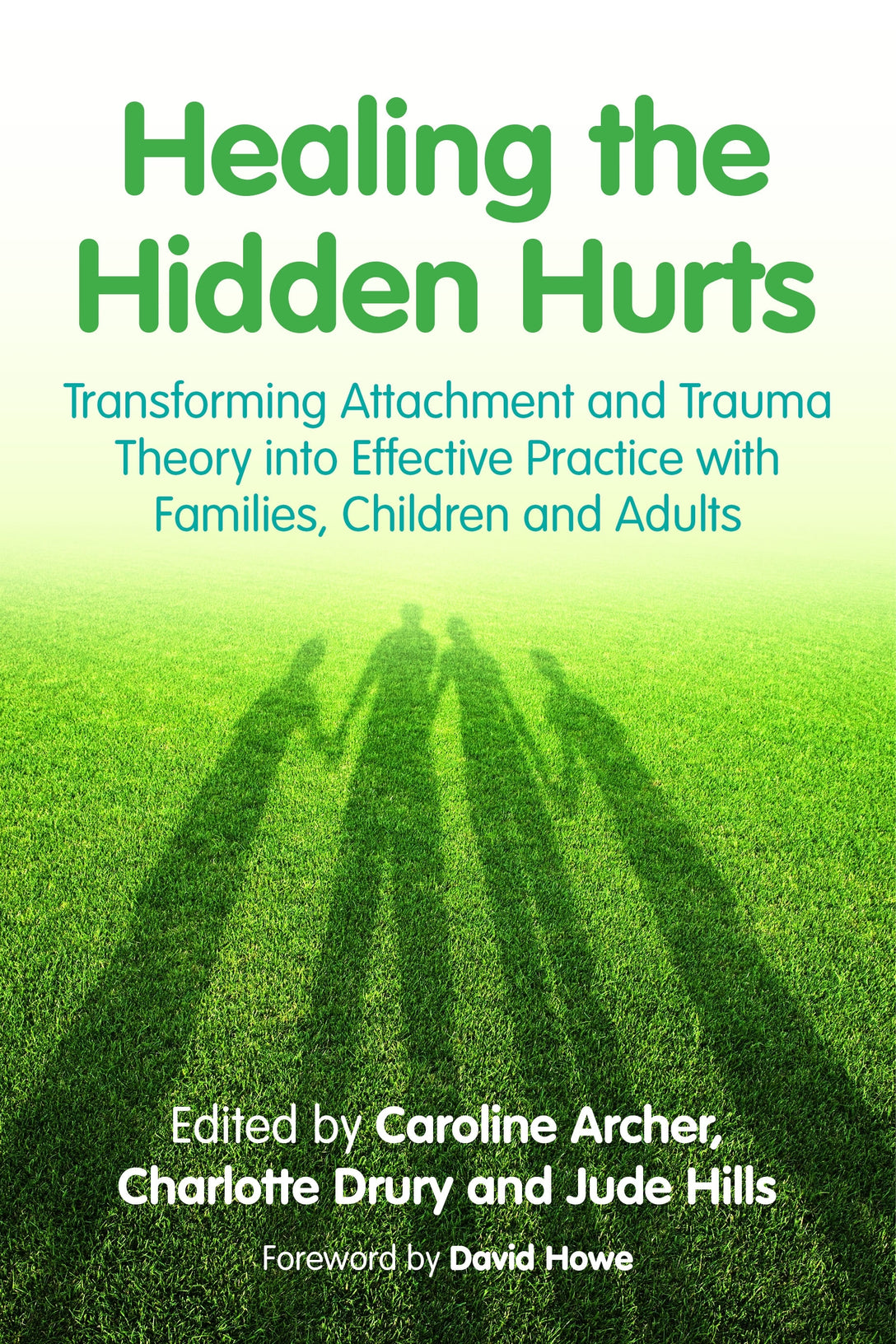
Press Reviews
From the foreword by David Howe
It is rare, indeed a privilege to read a book on attachment in which the rawness and immediacy of caring for and working with children...comes across so powerfully. The authors of each chapter speak directly of their own experience - as birth parents, adoptive parents, foster carers, teachers, therapists, social workers, children. Their honesty and candour, hurt and love burn through every page. Healing the Hidden Hurts gives us a rare glimpse of attachment in action and relationships in practice, through thick and thin. I hope that when you have read the following fourteen chapters, each one as brave as it is personal, you will feel as uplifted as I did when I first had the pleasure of reading this exceptional volume.
Nicola Hope, Team Coordinator, Children & Families Services, Staffordshire County Council
This is an exciting text which provides professionals with examples of attachment theory in practice. I like how you can dip into each chapter whilst there is still a running theme if you read from start to finish. This is a very realistic text which also remains academic and informative, using different disciplines to show how we can understand attachment behaviour, whilst still being very relevant to the social worker and the profession. The practical examples give the reader a real sense of how they could apply their learning from reading this to the children and families they are working with. This book touched me personally and I think that people will be able to relate to the examples in this book on both a personal and professional level.
Nancy Verrier, MFT Author of The Primal Wound and Coming Home to Self
Haven't we always known that relationships are at the heart of the human experience? But what happens when the primal attachment doesn't happen as it should? Before we are rational beings, we are sensual beings. Trauma happens at the sensual, emotional level and thus doesn't lend itself to reflection and rational responses. This book recognizes and addresses this in an easy to understand manner. This work is amazing in that, not only has it included the emotional, neurobiological, psychological, and social developmental wounds inherent in attachment deficits, but it has done an exceptional job of demonstrating this understanding in a variety of different scenarios. This makes the book a treasure for anyone who works with children: parents, teachers, physicians, psychologists, social workers, lawyers and the "adult children" themselves who want to understand their reactions to their own childhood experiences. There are so many exciting things to say about this book, it would take another book to list them all. I would just say that if I were to recommend any book on the subject of how attachment affects children as well as excellent suggestions for healing, this is the book.
Dan Hughes Ph.D. clinical psychologist and co-author of Creating Loving Attachments: Parenting with PACE to Nurture Confidence and Security in the Troubled Child
The best way to understand the theory of trauma and attachment is through understanding the unique experience and challenges of each traumatized child along with the unique attachment relationship that is crucial for each of these children both to heal and develop trusting relationships with their caregivers. Caroline Archer, Charlotte Drury and Jude Hills have undertaken to help us to understand these theories which is crucial if we are to provide the best treatment and care for many foster and adopted children and their families. They have chosen to do so by providing us with a mosaic of children who have experienced a variety of traumas, as well as a great diversity of adults - of their carers and the professionals who are supporting them. In Healing the Hidden Hurts, the editors have chosen wisely many sensitive and reflective individuals who have the experience - and the skill to convey it - to assist us in our challenges to care for or provide services for, each traumatized child who we meet.
Jade Smith
ACAMH - The Association for Child and Adolescent Mental HealthThis is a fantastic book providing informative theory and research leading to formulation and intervention across the child's world. The authors provide narrative accounts via case studies that explore the rich and complex backgrounds of children who have experienced maltreatment and they walk us through their developmental journey. The authors demonstrate practical, reflective attachment-based interventions that can be developed to hold the child in mind and help them understand themselves. They also provide useful ideas for education, social care and health care professionals supporting young people following chronic trauma, whose experience manifests through emotional and behavioural or mental health presentations.
